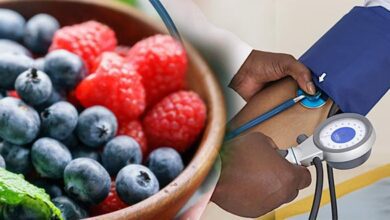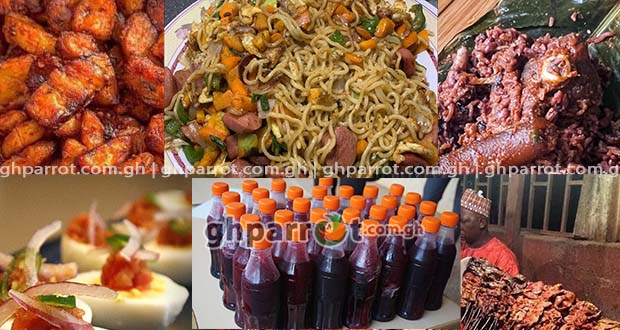
Ghanaian street food is more than just a quick meal. It’s culture, comfort, and even a source of national pride. Whether it’s from bustling trotro stations or your favorite roadside corner, the aroma of popular street foods fills the air daily. But here’s the uncomfortable question: Could your favorite Ghanaian street food be slowly harming your health?
RECOMMENDED: Understanding Comprehensive Insurance
Let’s break down 6 popular street foods in Ghana that may be putting your health at risk and what you can do to stay safe.
1. Kelewele (Spicy Fried Plantain)
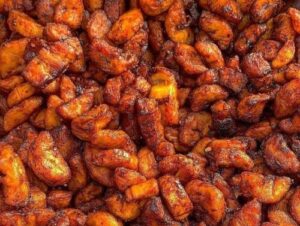
Why you love it: Crispy, spicy, and the perfect late-night snack.
What’s the danger? Many kelewele vendors reuse cooking oil multiple times. This can produce toxic chemicals like acrolein, which are linked to cancer and long-term organ damage. Some fry openly near gutters or drains another red flag.
Safe tip: Choose vendors who cover their food and change their oil regularly.
2. Waakye
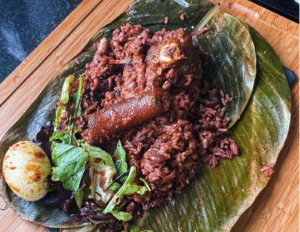
Why you love it: A Ghanaian street food legend, rich, flavorful, and filling.
What’s the danger? Waakye is often cooked early in the day and left unrefrigerated for hours, creating the perfect environment for bacterial growth. Shito, gari, and spaghetti toppings are sometimes left uncovered, attracting flies and dust.
Safe tip: Buy hot, fresh waakye and avoid toppings exposed to the open air.
3. Chinchinga (Grilled Meat Kebab)
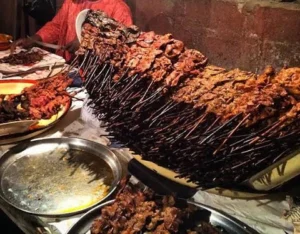
Why you love it: Smoky, spicy meat that’s easy to grab on the go.
What’s the danger? This favorite street food is often grilled using unrefrigerated meat or half-cooked over open flames. Reused skewers and marinades can also spread harmful bacteria.
Safe tip: Look out for vendors who grill meat in front of you and store it in coolers.
4. Sobolo (Hibiscus Drink)

Why you love it: Sweet, cooling, and wallet-friendly.
What’s the danger? Sobolo sold on the street is often made with untreated tap water or stored in reused plastic bottles. Vendors may also add excess sodium benzoate or food coloring to boost shelf life.
Safe tip: Buy sealed and properly labeled drinks or make your own at home using clean water.
5. Boiled Eggs with Pepper Sauce

Why you love it: A high-protein, spicy snack found on nearly every corner.
What’s the danger? Eggs are usually stored without refrigeration, and the pepper sauce is left open and unrefrigerated, making it a breeding ground for bacteria.
Safe tip: Choose eggs stored in iceboxes, and make sure the sauce is covered.
6. Indomie with Sausage and Egg

Why you love it: A go-to street meal, especially after dark.
What’s the danger? Many Indomie vendors use expired sausages, unwashed vegetables, or prepare food on dirty surfaces. Cross-contamination is a major risk.
Safe tip: Only buy from vendors with visibly clean setups and fresh ingredients.
What’s Really at Stake with Ghana Street Food?
A 2024 report by the Ghana Food and Drugs Authority revealed:
“Over 68% of sampled street foods in Accra tested positive for E. coli, salmonella, or heavy metal contamination.”
These dangerous microbes and toxins can cause
Food poisoning
Stomach ulcers
Typhoid and cholera
Long-term liver and kidney damage
How to Enjoy Ghana Street Food Safely
Loving Ghanaian street food doesn’t mean risking your health. Follow these safety tips:
Buy from clean vendors who use gloves and covered utensils
Avoid food exposed to dust, flies, and open gutters
Choose food that’s served hot and fresh
Wash your hands or use sanitizer before eating
Ask vendors how they store water, meat, and toppings
Street Foods in Ghana Can Be Safe If You Stay Informed
You don’t need to abandon your favorite street foods. You just need to be more aware of the hygiene behind them. Food should nourish, not harm.
Tag someone who eats waakye every morning; they NEED to read this.






